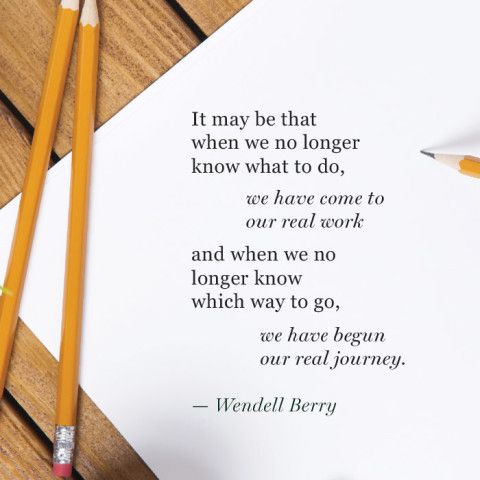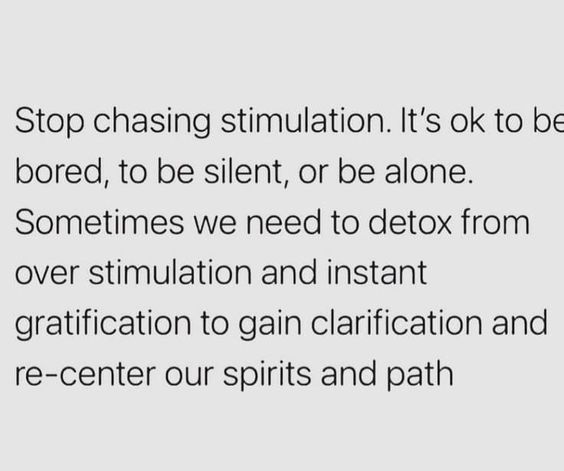“John D. Rockefeller would take regular breaks from his notoriously demanding schedule to mill about in his garden—it was his personal escape. Find your “garden” and go there often. Practice stillness, flex the solitude muscle. Be bored for at least 15 minutes per day. It’s an unlock for creativity and mindfulness.”
Sahil Bloom
“A weak mind must be constantly entertained and stimulated. A strong mind can occupy itself and, more importantly, be still and vigilant in moments that demand it.”
Ryan Holiday, Discipline Is Destiny (Page 104)
“One of the first things one learns in practicing meditation is that nothing is intrinsically boring—indeed, boredom is simply a lack of attention. Pay sufficient attention, and the mere experience of breathing can reward months and years of steady vigilance.”
Sam Harris, Waking Up (Page 156)
“Every day is different, and if sometimes you cannot see the difference between one day and another, that simply means that you are not seeing rightly. Nothing is ever repeated. Repetition does not exist. Existence is always fresh, utterly fresh. But if we look through the past, accumulated thoughts, the mind, then it can appear like repetition. And that’s why the mind is the only source of boredom. It makes you bored, because it never allows the freshness of life to be revealed to you. It goes on seeing things in the same pattern.”
Osho, Everyday Osho (Page 261)
“My aunt and uncle in their country home taught me how to be okay with sitting still, a quality that has been as important to my career as anything. To be a decent writer, you have to be okay with either writing or doing absolutely nothing. I’m a firm believer that the only way to be creative is to sit around and do nothing until you get bored enough to entertain yourself.”
Cole Schafer
“The most valuable lesson I’ve learned as a journalist is that everybody is interesting if you ask the right questions. If someone is dull or uninteresting, it’s on you.”
Kate Murphy, You’re Not Listening
“There’s more stimulation, more options and more noise than ever before. The problem is that boredom is a partner with satisfaction and joy. It’s hard to overstimulate ourselves into those feelings.”
Seth Godin, Blog
“It is a good thing, it is even salutary, for a child to have periods of boredom, for him to learn to know the dialectics of exaggerated play and causeless, pure boredom.”
Gaston Bachelard, via Sunbeams (Page 117)
“You try being alone, without any form of distraction, and you will see how quickly you want to get away from yourself and forget what you are. That is why this enormous structure of professional amusement, of automated distraction, is so prominent a part of what we call civilization. If you observe, you will see that people the world over are becoming more and more distracted, increasingly sophisticated and worldly. The multiplication of pleasures, the innumerable books that are being published, the newspaper pages filled with sporting events—surely, all these indicate that we constantly want to be amused. Because we are inwardly empty, dull, mediocre, we use our relationships and our social reforms as a means of escaping from ourselves. I wonder if you have noticed how lonely most people are? And to escape from loneliness we run to temples, churches, or mosques, we dress up and attend social functions, we watch television, listen to the radio, read, and so on… If you inquire a little into boredom you will find that the cause of it is loneliness. It is in order to escape from loneliness that we want to be together, we want to be entertained, to have distractions of every kind: gurus, religious ceremonies, prayers, or the latest novel. Being inwardly lonely we become mere spectators in life; and we can be the players only when we understand loneliness and go beyond it… because beyond it lies the real treasure.”
J. Krishnamurti, Think On These Things, via Sunbeams (Page 3)
“Boredom simply means that the way you are living is wrong; hence it can become a great event, the understanding that, ‘I am bored and something has to be done, some transformation is needed.'”
Osho, Courage (Page 169)
“Why does one feel bored? One feels bored because one has been living in dead patterns given to you by others. Renounce those patterns, come out of those patterns! Start living on your own.”
Osho, Courage (Page 168)
“Somebody who thinks they’re nothing and don’t matter because they’re not doing something for even a few days is depriving themselves of stillness, yes—but they are also closing themselves off from a higher plane of performance that comes out of it.”
Ryan Holiday, Stillness is the Key (Page 189)
25 Quotes on Being Bored and Why Our Modern Reaction To “Fix It” Is Wrong
Excerpt: …Bored? Instead of running from boredom, you should learn how to embrace it. Read our 25 quotes on being bored and find out why.
Read More »25 Quotes on Being Bored and Why Our Modern Reaction To “Fix It” Is Wrong
“The bad habits we’ve formed are often useful to us because they help us deal with stress and boredom. Consider some of the bad habits that fit this bill: smoking, procrastination by browsing the Internet, eating junk food, drinking, addiction to TV or video games, compulsive shopping, biting nails. All of these habits fill a strong need: they are ways to cope with stress and/ or boredom. We have formed them as coping mechanisms, and they stick around because we don’t have better ways of coping. So if we replace them with healthier ways of coping, we get rid of the problems of these bad habits, and start getting the benefits of better habits.” ~ Leo Babauta, Essential Zen Habits (Page 152)





